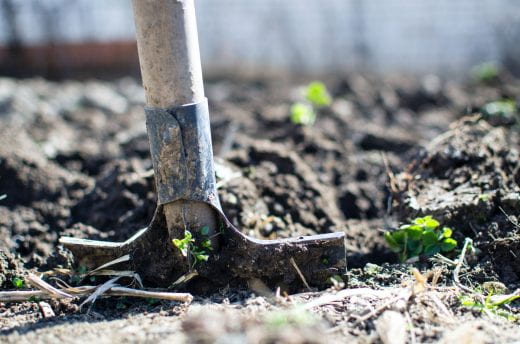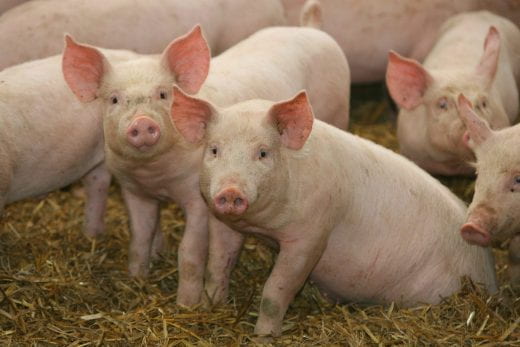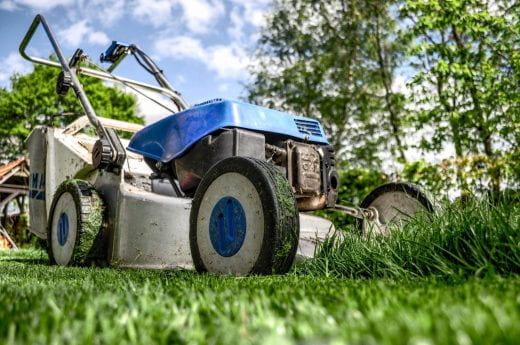In today’s Better Kansas, we touch on APPLES, our disappearing state bird the Western Meadowlark, Urban Food Systems Symposium, soil sampling, agricultural exports, and podcasts focused on swine research. This is a small glimpse of what K-State Research and Extension across the state has to offer. Share on social media and subscribe! – Mary Lou Peter mlpeter@ksu.edu
Better Living, Better Communities
ONE OF THE BEST THINGS ABOUT THIS TIME OF YEAR IS APPLES, RIGHT? Apple strudel, French apple pie, cider donuts – it’s all good. Whether you’re a MacIntosh or Jonathan kind of guy or a Gala or Fuji kind of girl, it’s helpful to know we can keep that flavor going by safely preserving this classic fruit. Take a look at Preserve it Fresh, Preserve it Safe: Apples for tips on freezing and canning, plus recipes for applesauce, apple butter and more. I’m not sure how I missed it early in life, but I finally discovered how well apple slices and peanut butter go together. So good.
OH, NO! THE KANSAS STATE BIRD IS DISAPPEARING? Previously I brought you information about how bird populations are declining but I was thinking in general terms. You know, how you don’t really think about something affecting you until it happens in your own family or your own back yard? Then, I heard one of our own K-State extension agents featured on an excellent KCUR Up to Date podcast about the Western Meadowlark and other birds disappearing. Geary County extension agent Chuck Otte also serves as the secretary of the Kansas Bird Records Committee. Listen in to hear why they’re disappearing and what we can do about it. He’s also quoted in a Wichita Eagle newspaper article on the topic. Did you know that the Western Meadowlark is the state bird for six states? I don’t remember learning THAT in elementary school.
THIS YEAR’S URBAN FOOD SYSTEMS SYMPOSIUM STARTS WED., OCT. 7 and will be held every Wednesday in October. Because it’s virtual this year, you can be anywhere and join in. With the theme Nourishing Cities in a Changing Climate, the symposium offers an array of topics and nationally-known speakers from across the country. Take a look at the schedule and register now.
Better Farming, Ranching and Gardening
 GROWING GOOD, HEALTHY PLANTS STARTS WITH GOOD SOIL. But some of us in Kansas have less than perfect soils that can use some help in growing fruit, vegetables and even crops and pastures. The way to determine what we can do to improve our soils for growing seasons to come is by taking a soil sample and now is a good time of year to do that. A short Wildcat Extension District article on Soil Sampling provides the basics. Check with your local K-State Research and Extension office with any questions about submitting samples. Hey, sometimes you have diagnostic bloodwork done before you go to the doctor, right? In this case the payoff is in a beautiful lawn, a better, healthier broccoli or cantaloupe crop or more beautiful, abundant flowers. Another factoid I came across this week is that Kansas has a state soil! It’s Harney Silt Loam.
GROWING GOOD, HEALTHY PLANTS STARTS WITH GOOD SOIL. But some of us in Kansas have less than perfect soils that can use some help in growing fruit, vegetables and even crops and pastures. The way to determine what we can do to improve our soils for growing seasons to come is by taking a soil sample and now is a good time of year to do that. A short Wildcat Extension District article on Soil Sampling provides the basics. Check with your local K-State Research and Extension office with any questions about submitting samples. Hey, sometimes you have diagnostic bloodwork done before you go to the doctor, right? In this case the payoff is in a beautiful lawn, a better, healthier broccoli or cantaloupe crop or more beautiful, abundant flowers. Another factoid I came across this week is that Kansas has a state soil! It’s Harney Silt Loam.
ABOUT HALF OF THE KANSAS WHEAT CROP IS EXPORTED TO OTHER COUNTRIES EACH YEAR and plenty of our other crops are, too. In fact, overall Kansas exports nearly $3.8 billion in agricultural products including beef, wheat, soybeans and corn, according to the Kansas Department of Agriculture. That’s a huge contribution to the state’s economy and is why the state’s farmers and ranchers keep a keen eye on what’s going on in other countries. Take a look at Notes and Observations in International Commodity Markets to keep up on the latest developments.
 K-STATE AND OTHER LAND GRANT UNIVERSITIES DO A TON OF RESEARCH including agricultural research, and the results are usually written up in peer-reviewed scientific journals. The outcomes – what the scientists learned – are often also shared with the public via news articles, radio broadcasts, extension agent columns and newsletters. That’s what land grant universities do – conduct research and convey the results to citizens whose lives, homes, communities and industries may be affected. A relatively new way of presenting research results is through podcasts. Pork producers, nutritionists, veterinarians and others in the industry will want to listen to Swine Podcasts which provide research presentations on a variety of topics. Think of it as This American Life for swine producers. Too much of a stretch?!
K-STATE AND OTHER LAND GRANT UNIVERSITIES DO A TON OF RESEARCH including agricultural research, and the results are usually written up in peer-reviewed scientific journals. The outcomes – what the scientists learned – are often also shared with the public via news articles, radio broadcasts, extension agent columns and newsletters. That’s what land grant universities do – conduct research and convey the results to citizens whose lives, homes, communities and industries may be affected. A relatively new way of presenting research results is through podcasts. Pork producers, nutritionists, veterinarians and others in the industry will want to listen to Swine Podcasts which provide research presentations on a variety of topics. Think of it as This American Life for swine producers. Too much of a stretch?!
_
For more resources and activities, contact the K-State Research and Extension office in your area. Check out our other blogs and subscribe to our weekly emails here: https://www.ksre.k-state.edu/news/blogs/











